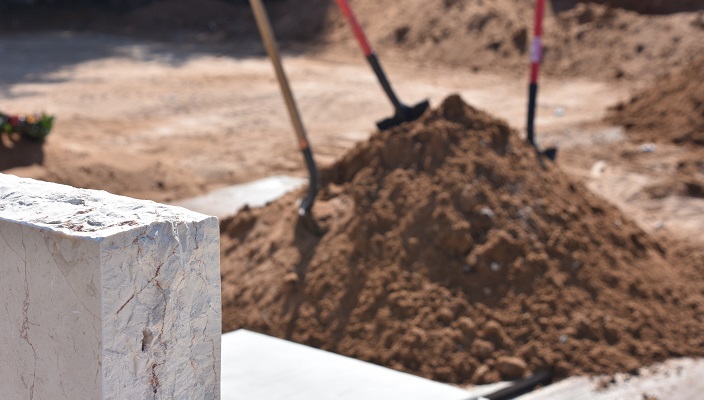
In my quarter-century in the rabbinate, I have found that most elderly people reaching the end of their lives do so with grace and dignity, even in the face of pain or extended illness. Most accept the medical assistance they need, whether in a hospital, nursing-home, or hospice setting – the latter most preferably at home.
As they review their final wishes, however, I increasingly hear: “Rabbi, I don’t want a funeral.”
Sometimes it’s because they don’t want to be a burden to their loved ones; their children and grandchildren are scattered, and their friends find it difficult to travel.
Sometimes it’s because they think they don’t deserve it. Perhaps there have been difficulties in their family relationships that they regret, or they simply are overly humble about anyone caring about them at their advanced age.
But always, I try to persuade them to change their minds. In Judaism, I believe, everyone ought to have a funeral – not only for themselves, but also for those they leave behind.
The Jewish funeral, and its importance, is as old as Judaism itself. In the Hebrew Bible, Abraham, upon hearing of the death of his beloved Sarah, “came to mourn for Sarah and to weep for her” (Gen. 23:2). It was a natural and spontaneous rush of emotion – and a message to each of us that we need and deserve a time to grieve the loss of someone close to us. But we also need a place, which is why Abraham immediately purchased a cave in which to bury Sarah.
The act of laying Sarah to rest gently and respectfully is the beginning of our mourning traditions. It was later carried out by Abraham’s sons – Ishmael, the abandoned one, and Isaac, the chosen one – who came together despite their estrangement and buried their father in the same cave (Gen 25:9). From here we see how loved ones can be brought together to fulfill what is both a responsibility and a blessing.
As a responsibility, what we now call a funeral is, indeed, a mitzvah: a divine commandment so important that levayah ha-met – accompanying the deceased to their final rest – is emphasized in the daily morning prayers as an act one must do whenever the need arises. As a blessing, it honors your life from beginning to end; it also honors those you leave behind with the opportunity to remember you and to talk about you in a safe and sacred space and time.
In this way, a Jewish funeral can satisfy the traditions both to honor the dead (kavod hamet) and to honor the living (kavod haChayim). As Dr. Mark Washofsky wrote in Jewish Living: A Guide to Contemporary Reform Practice, “the concrete expression of grief upon the death of a loved one is a religious duty as well as a psychological necessity.”
You should lay out your intentions clearly while you still can. Make pre-arrangements with a funeral home and discuss with your rabbi the details of the service: where it will be, who will participate, who will deliver a eulogy. And make sure you talk to your children and other loved ones about your wishes as well as putting them in writing, so your loved ones never will be in doubt about whether they are “doing the right thing” by you.
But please opt to have a funeral. At the temple or synagogue, at the funeral home, or even graveside. Give them a chance to embrace each other in memory of you. Let them have the opportunity for emotional release by reminiscing over photos and family mementos. Let them have the chance for physical release by accompanying you to your rest, and by lifting the shovel at graveside with a bit of the earth that will hold you forever.
Want to learn more about Jewish death and mourning customs? Check out these articles: “What to Expect at a Jewish Funeral,” “Preparing for a Jewish Funeral: A Guide,” and “Everything You Need to Know About the Jewish Custom of Shiva.”
